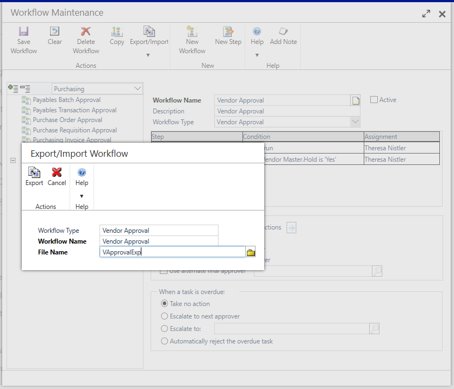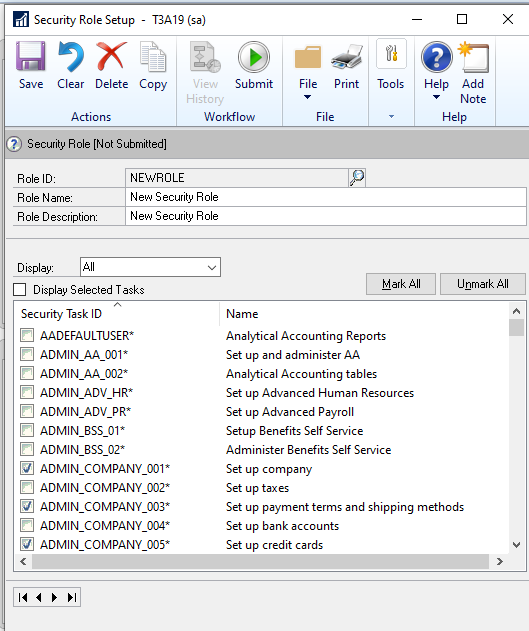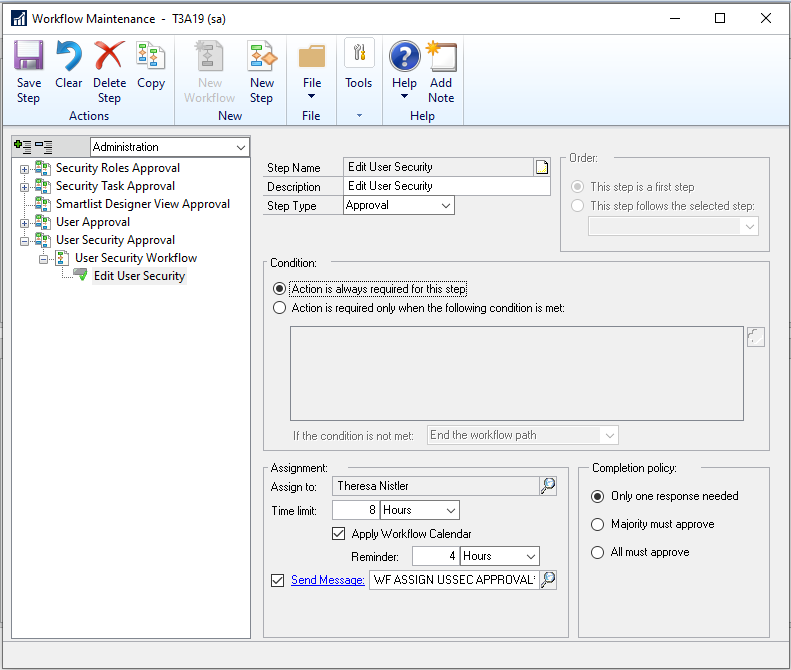 The Inside Microsoft Dynamics GP blog has started a series Feature of the Day posts for Microsoft Dynamics GP “October 2019” Release on which I am following and adding commentary. The index for this series of posts is here.
The Inside Microsoft Dynamics GP blog has started a series Feature of the Day posts for Microsoft Dynamics GP “October 2019” Release on which I am following and adding commentary. The index for this series of posts is here.
The fifth Feature of the Day is User Access Enhancements.
There are four enhancements to the User Access window. Firstly, you can choose to filter inactive users from displaying in User Access Setup. This is a per user setting and will be saved the next time you open the window:
Continue reading “MDGP October 2019 Release Feature of the Day: User Access Enhancements”












